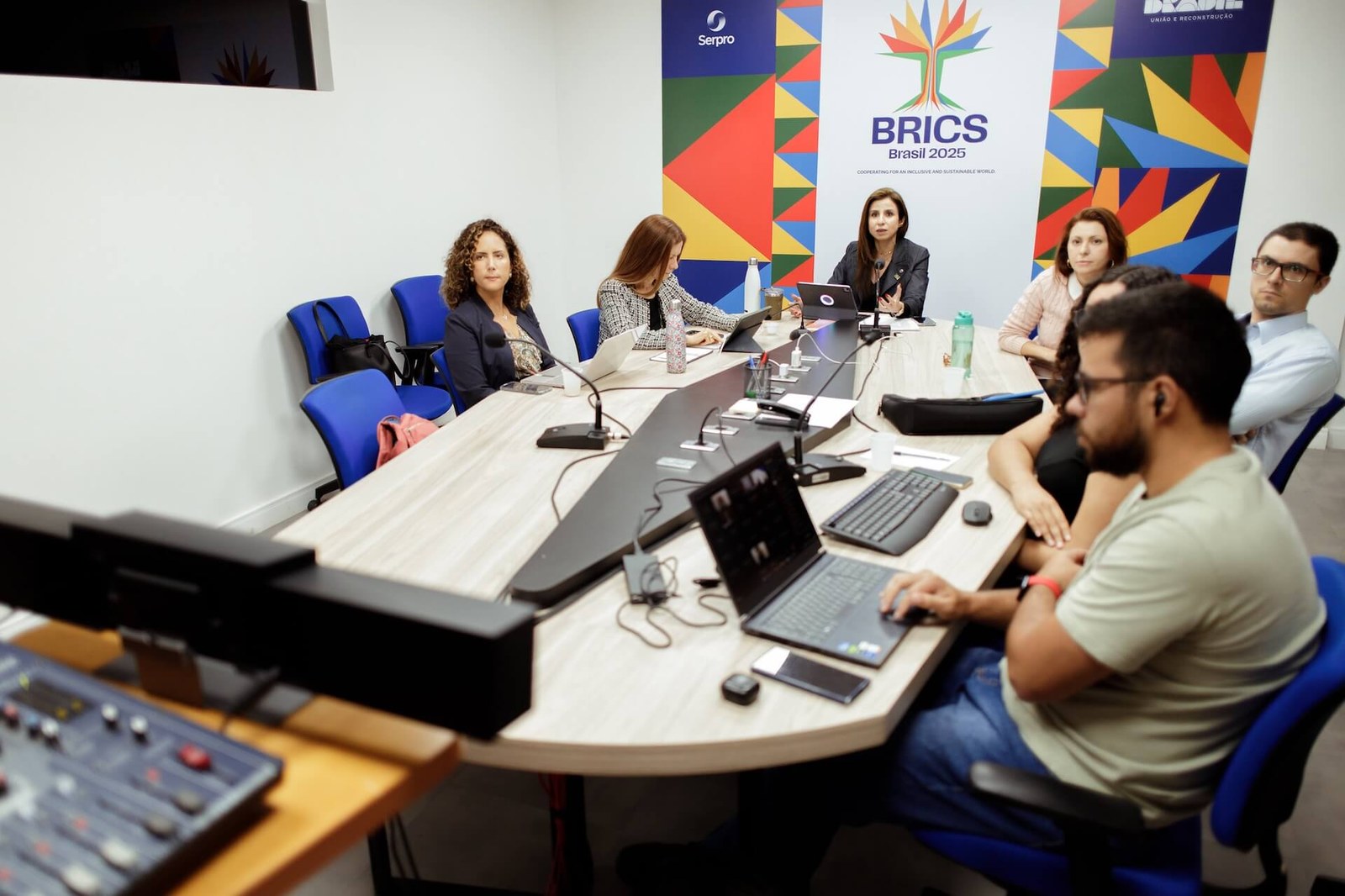BRICS debates social protection and the impacts of climate on the world of labor
Extreme temperatures and their impacts on workers’ health and productivity were central themes at the BRICS. Countries agree on the need for integrated public policies to protect workers and promote innovation, ensuring decent jobs.

By Leandro Molina | leandro.molina@presidencia.gov.br
The second meeting of the BRICS Employment Working Group was held online from Brasilia, gathering representatives from member countries to discuss the impacts of climate change on the world of labor, social protection, and the need for a fair transition to more sustainable economies. Coordinated by Brasil, the event featured participation from international experts, as well as representatives from governments, workers, and employers.
Maíra Lacerda, head of the Special Advisory for International Affairs at Brasil’s Ministry of Labor and Employment (Ministério do Trabalho e Emprego /MTE), highlighted that Brasil opened the discussions by reinforcing the commitment of the BRICS to efficient use of natural resources and sustainable planning. "Aligning job creation with policies to reduce emissions is key to ensuring a transition that does not leave anyone behind," she stated.
One of the central themes of the event was the impact of climate change —particularly of extreme temperatures— on workers’ health and productivity. Maíra Lacerda underscored that the majority of the BRICS countries share similar concerns. "We see that there is an alignment regarding the need for public policies that integrate workers’ health, security, and protection," she said.
FUNDACENTRO, linked to MTE, presented innovative initiatives to address these challenges. Daniel Bitencourt, a researcher at the foundation, highlighted the IBUTG Monitor, a monitoring and alert tool for critical situations involving heat and thermal stress. Available —free of charge— for Android, iOS, and computers, the app allows workers and employers to monitor risks associated to the temperature conditions in the work environment in real time. "This technology is an example of how innovation can protect workers’ health, particularly those who work in external environments," Bitencourt explained.
Fair and inclusive transition
The transition to a low-carbon economy was another central point of the debate. Maíra Lacerda underscored that, even though disagreements were expected to take place —especially among oil producing countries— consensus prevailed. "Everyone spoke about the importance of investing in renewable energies and providing training for workers for this new industry," she stated.
Moustapha Kamal Gueye, head of the Green Jobs program at the International Labour Organization (ILO), stressed the need for a fair transition since the beginning of the process. "In the past, there was an understanding that the energy transition would automatically lead to job generation and social protection. Now we know that these issues must be addressed simultaneously," he said. The ILO representative also presented data related to job opportunities generated by the green economy and highlighted the importance of social protection in mitigating climate impacts.
Social dialog and public policies
The meeting included participation from international organization such as the ILO and the International Social Security Association, as well as representatives of employer and worker sectors. Social dialog was indicated as the key to creating public policies that can ensure workers’ protection during the transition to a green economy.
Discussions covered various measures, including temperature monitoring, regulating working hours under extreme conditions, using personal protective equipment (PPE), and educating workers about their rights. "Workers need to be aware of their right to safe working conditions, especially in the context of climate change," said Lacerda.
The meeting also revealed the diverse challenges faced by BRICS countries. While the United Arab Emirates highlighted the technological advancements and investments on the energy transition, countries like South Africa and Brasil emphasized the need for financing and technical support. Ethiopia shared initiatives related to sustainability, such as its reforestation program, while Iran highlighted the importance of polluting countries taking greater financial responsibilities in the global climate transition.
Artificial intelligence and the future of work
Artificial Intelligence (AI) was also part of the discussion, although it was more deeply approached at the first meeting of the group two weeks prior. Maíra Lacerda explained that AI was addressed as a potential tool for public policies, without "demonization". "Artificial Intelligence can be used to develop apps that can help with the provision of public services and knowledge sharing," she argued.
In addition to worker protection, the transition to renewable energies can have a positive impact on the economy. "The so-called ‘green economy’ has the potential to generate jobs and bolster economic growth,” Lacerda stated. However, she underscored that the main focus must be the protection of workers during this transition, particularly in sectors that can undergo transformations or even disappear.
Maíra Lacerda showed optimism regarding the meeting results and the group’s final statement, which will bring concrete elements to be applied in public policies within the BRICS countries. "We are moving towards a consensus that reflects the common needs of our countries," she concluded.